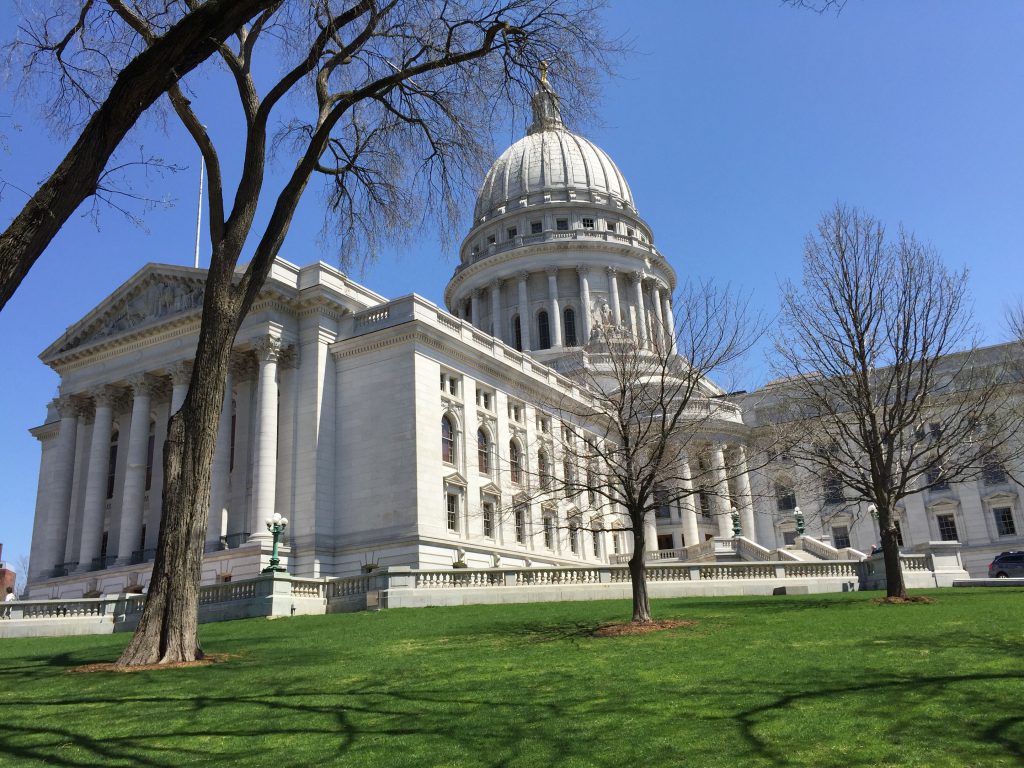Pay Raise for State Workers Delayed
Legislators still haven't approved union contracts from last year.
After several months delay, contracts covering unionized state workers could finally go before state lawmakers for their required review next week.
A spokeswoman for state Sen. Roger Roth (R-Appleton) said Tuesday that the Joint Committee on Employment Relations has penciled in a meeting for Wednesday, Dec. 18, pending confirmation that all members can attend. Roth and Assembly Speaker Robin Vos (R-Rochester) co-chair the panel.
About 440 carpenters, plumbers, electricians and other building trades workers employed by the state, the University of Wisconsin-Madison, and the non-Madison campuses that make up the University of Wisconsin System have yet to see the 2.46% raises they negotiated for 2018-2019 according to Dave Branson, executive director of the Building and Construction Trades Council of South Central Wisconsin. That pay hike was to take effect nearly a year ago, but can’t be paid until lawmakers and the governor sign off on it.
The legislature’s Joint Committee on Employment Relations (JCOER), which must review and approve state employee union contracts before sending them on to the state legislature for its approval and then the governor, hasn’t met since the spring of 2018. At that time it approved the 2017-2018 collective bargaining agreement that raised the wages of building trades workers working for the state and the university system by 1.26%.
The delays since then have led some union members to write their lawmakers, including Roth, urging the committee to get back to work.
The state and university system building trade workers perform a wide range of tasks necessary for operations that involve a large collection of buildings, from the venerable Capitol itself to the most modern university properties.
“They’re fixing doors,” Branson said. “Electricians are changing lights. Plumbers are fixing any plumbing issues. Steamfitters keep the boilers working. Last year, when we had the polar vortex, there were pipes that froze and were bursting and needed to be fixed.”
But with the lapse of nearly a year since they were supposed to get their last raise, “they’re extremely frustrated,” said Branson. “We negotiated in good faith.”
After no sign of action by the committee, a building trades member emailed Roth and Vos in June asking when the committee would meet to act on that contract, which was already five months past the effective date of the wage hike in that agreement. Roth replied June 13 that the committee had “recently received” information on the contracts and were “working through them,” but that the Department of Administration and the UW System “had not reached out and met with” each JCOER member.
With the 2018-2019 contracts still in limbo, the UW-Madison, the UW system, and the state went on to negotiate and ratify new contracts with the union for the 2019-2020 fiscal year, then notified the committee last month about the new agreements.
Roth’s communications director, Angela Roidt, told the Wisconsin Examiner that there had been delays from the Department of Administration, including errors in some information received. Roidt did not address why action on the 2018-2019 contracts had been delayed.
A spokeswoman for the Department of Administration said the information had been submitted to JCOER Nov. 8. Under Act 10, the 2011 law then-Gov. Scott Walker introduced early in his first term stripping most collective bargaining rights for most public employees, wage contract negotiations for public employees are limited to no more than the consumer price index.
Except for police unions, which weren’t restricted by Act 10, the only unions for state employees that remain certified under the law are those representing building trades workers and one representing assistant district attorneys. Act 10 which requires unions to recertify every year with an absolute majority of all members they represent, including members who don’t vote.
By contrast, union wages among state building trades workers tracked private sector construction wages in the years before Act 10. In addition, pre-Act 10 wage formulas included funds to cover health insurance premiums as part of the hourly wage. Those supplemental amounts are missing from the base wage increases permitted under the current law.
Even with the promised pay hikes their members are due once the 2018-2019 and 2019-2020 agreements are acted upon, “their wages have not kept up, and their health care prices keep going up,” Branson said.
As a result, some younger workers are leaving the state for the private sector, where they see better opportunities for wage growth, he said. Older workers, however, are sticking around, having invested time and hoping to hang on to accumulated retirement benefits. “These guys have been in it for a long time.”
Reprinted with permission of Wisconsin Examiner.






















